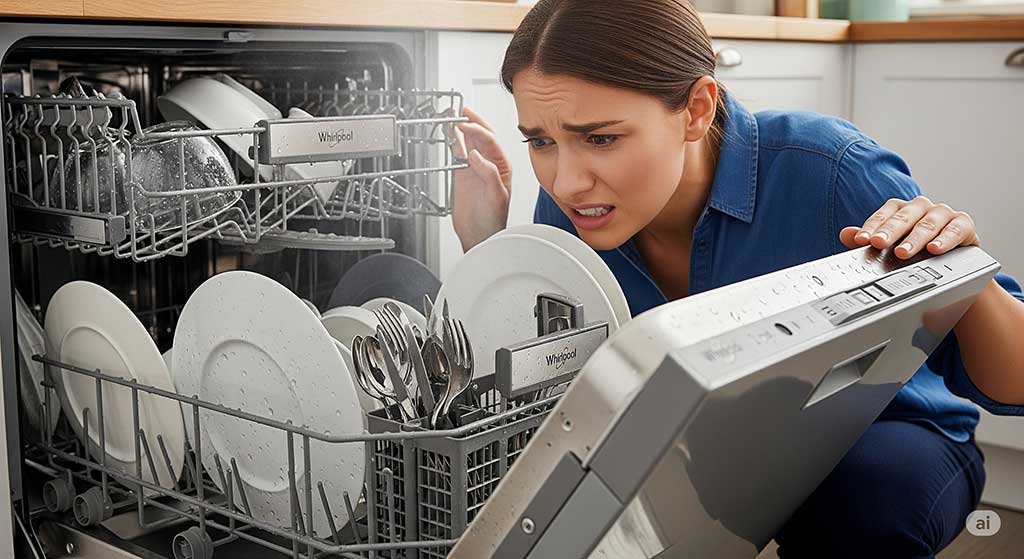The best time to run your washing machine is typically during off-peak hours, usually between 8 PM and 7 AM. This helps save energy and reduces strain on the grid. Additionally, it ensures quieter operation and frees up daytime hours for other activities.
Optimizing the timing for your laundry routine is more than just a simple household task. It’s an opportunity for energy efficiency and savings. Smart homeowners and eco-conscious individuals alike aim to use their washing machines when electricity demand is low and rates are cheaper.
This approach not only reduces strain on the energy grid but also cuts down on your utility bills. Not to mention, waiting for a full load maximizes water usage, making it an environmentally responsible choice. By aligning your laundry schedule with these strategic times, you contribute to a culture of sustainable living and cost-effective home management.
Peak Vs. Off-peak Electricity Hours
Electricity costs vary throughout the day. During peak hours, demand is high, and rates spike. Yet, off-peak hours bring lower rates as demand drops. Scheduling laundry during off-peak times can lead to significant savings. Understanding these hours and their impact on your bills is key to optimizing home appliance use, especially large ones like washing machines.
Determine Your Local Utility’s Schedule
- Check with your utility provider: They will share the specific times for peak and off-peak hours.
- Review your electricity bill: It often outlines the different rates and times.
- Use smart meters: If available, they provide real-time electricity usage data.
Advantages Of Off-peak Laundry
Doing laundry during off-peak hours can lead to cost savings and contribute to energy conservation. It also helps reduce strain on the grid during high-demand periods. Let’s look at some clear benefits:
- Lower Electric Bills: Operating during off-peak hours means lower per-unit electricity costs.
- Environmental Impact: Lower demand on the grid equates to reduced need for non-renewable resources.
- Enhanced Grid Stability: Spreading out energy usage helps prevent blackouts and grid overloads.

Credit: www.candy-home.com
Maximize Energy Efficiency
Want to save energy while doing laundry? You’re at the right spot. Keeping our planet green starts at home with choices like when to run the washing machine. Let’s dive into how to make each wash more energy-efficient.
Energy-efficient Washing Machine Models
Newer models boast features that trim down your electric bill. Look for those rated with an ENERGY STAR label; they use 25% less energy. Here’s a breakdown:
- Front-loaders are often more efficient than top-loaders.
- Check for high-efficiency (HE) symbols.
- Smart washers can be scheduled during off-peak hours.
Optimal Water Temperature Settings
Hot water guzzles energy. Switch to cold water cycles to cut down costs. Most detergents work just as well in cold water. It also preserves clothes longer.
Let’s look at the best settings:
Water Temperature | Use For | Energy Saving |
|---|---|---|
Cold | Most clothes | Highest |
Warm | Heavier soiling | Medium |
Hot | Disinfecting | Lowest |
Remember, your washing machine’s efficiency depends on right temperature settings.
Load Scheduling Strategies
Mastering Load Scheduling Strategies for your laundry can save energy and time. Let’s explore the optimal times to run your washing machine. Aim to find a balance between energy efficiency and convenience.
Nighttime Washing
Nighttime washing takes advantage of lower energy rates. Many utility companies offer reduced rates in off-peak hours. This typically means washing between 9 PM and 7 AM. It’s not just about savings. It’s a smart strategy to use quieter cycles when the household sleeps.
- Ensure sleep is undisturbed: Choose a machine with a “silent” mode or schedule the spin cycle for the morning.
- Plan for unloading: Be ready to move clothes to the dryer or hang them up to prevent wrinkles or damp smells.
Weekend Laundry Routines
Weekends offer more flexibility for laundry. You can batch your washing and maximize each load.
- Start early: Kick off your laundry in the morning. This leaves the rest of your day free.
- Sort and conquer: Organize clothes by color or fabric type before the weekend. It speeds up the process.
- Enjoy off-peak rates: If available, use the off-peak hours for additional savings.
Impact Of Weather And Seasons
The timing of your laundry can be more important than you think. Weather patterns and seasonal changes play a significant role in energy usage and efficiency. Understanding how these factors impact your washing machine’s performance can lead to smarter decisions, saving energy and money.
Summer Energy Demands
In summer, energy consumption typically peaks. During hot months, electricity grids are under more strain due to the widespread use of air conditioners. Running your washing machine during off-peak hours, usually early mornings or late evenings, can lead to lower electricity costs and less stress on the energy grid.
- Use cooler water settings to minimize energy use.
- Benefit from long daylight hours by air-drying clothes.
Wintertime Energy Conservation
Winter brings its own set of challenges for energy conservation. The demand for heat can increase energy bills significantly. To maximize efficiency and minimize costs, it’s better to use your washing machine during the mid-day when it’s slightly warmer or during non-peak hours if time-of-use rates apply.
- Wash full loads to optimize energy use.
- Select a high-spin setting to reduce drying time.
Also Read: When to buy a washer?
Smart Home Technology Integration
Smart home technology is revolutionizing the way we manage our households, including the straightforward task of doing laundry. No longer do we need to plan our day around the washing machine’s cycle. Thanks to smart home integration, operating your washing machine has never been more convenient or efficient.
Programmable Timers
Modern washing machines with integrated smart technology come with programmable timers. These features allow users to schedule laundry cycles in advance. Scheduling washes during off-peak hours could save energy and reduce utility bills. Here’s how programmable timers enhance your laundry routine:
- Lower electricity rates during off-peak hours save you money.
- Laundry is ready at a convenient time for you.
- Reduces wear and tear by avoiding overuse in peak times.
Remote Start Features Using Apps
Apps transform your phone into a remote control for your washing machine. With a simple tap, you can start your laundry from anywhere. These apps provide not just start and stop controls but also real-time monitoring of the wash cycle. The benefits include:
- Start the wash cycle while you’re away from home.
- Get notifications when your laundry is done.
- Adjust settings on-the-go for a perfect wash.
By leveraging these remote features, you ensure that your washing happens at the best possible time, without being physically present.
Cost Savings Analysis
Running your washing machine at the optimal time can lead to significant cost savings. This section explores the best times for operation to help reduce your electricity bill.
Comparing Time-of-use Tariffs
Electricity prices can vary throughout the day based on time-of-use tariffs. These are periods when the cost of electricity changes. Understanding these can yield substantial savings.
The table below shows typical off-peak, mid-peak, and on-peak hours. Off-peak hours usually mean lower electricity rates.
| Time Period | Off-Peak Hours | Mid-Peak Hours | On-Peak Hours |
|---|---|---|---|
| Weekdays | 7 PM – 7 AM | 11 AM – 5 PM | 7 AM – 11 AM 5 PM – 7 PM |
| Weekends | All day | N/A | |
Scheduling your washing during off-peak hours could reduce your bill.
Long-term Savings Breakdown
Over time, washing during cost-effective hours adds up. Let’s break down potential savings.
- Avoid on-peak hours – This can save up to 10-25% on power bills.
- Consider energy-efficient machines – They use less power and water.
- Regularly maintain your washer to ensure it runs efficiently.
Here’s an example: Running your machine once in off-peak hours daily instead of on-peak could save you $50 to $100 yearly. These savings only grow with more frequent use or larger households.
FAQ
What Time Of Day Is Cheapest To Do Laundry?
The cheapest time to do laundry is typically during off-peak hours, usually late at night or early in the morning.
Is It Cheaper To Put Washing Machine On At Night?
Running your washing machine at night can be cheaper if your electricity provider offers lower rates during off-peak hours. Check with your utility company for any potential savings.
What Time Of Day Should You Not Use A Washing Machine?
Avoid using a washing machine during peak energy hours, typically from 4 PM to 7 PM, to conserve energy and reduce utility bills.
What Time Of Day Is The Most Expensive To Run Washing Machine?
The most expensive time to run a washing machine is typically during peak hours, usually in the evening from 4 PM to 9 PM.
Bottom Line
Determining the best time to put your washing machine on saves energy costs. Tailor your laundry routine to fit these factors and enjoy the benefits of clean clothes with maximized savings and convenience. Follow these tips and set the drum spinning at the best time for you!



